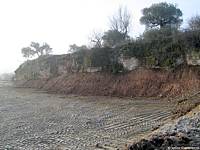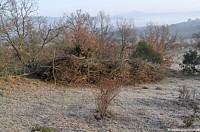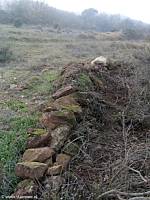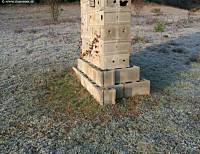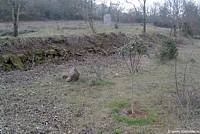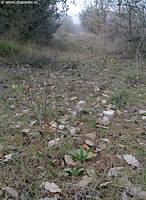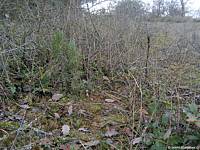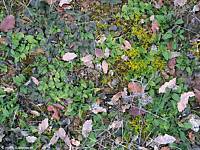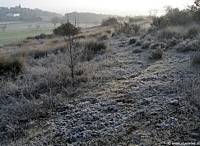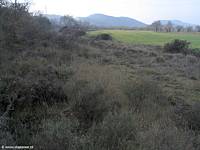|
|
Nature
Switched On
|
|
|
introduction |
2007 February 3 & 4, Saturday & Sunday This is what we saw upon arriving at our terrain and having a look at the eastern border on Saturday morning. Our neighbour had drastically moved and levelled his terrain for a horse meadow. What also surprises is the deep layer of soil below the chalk rocks. This must be a mayor resource for water and nutrients especially for trees and shrubs.
|
At the eastern border. |
|
On the highest terrace. Brambles cleared away giving more
opportunities to
Cornus sanguinea,
Ligustrum vulgare,
Crateagus monogyna,
Buxus sempervirens
and
Lonicera species. Sunday 14:03 |
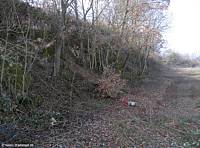
This weekend I finished the mayor part of all the pruning and
clearing. I used part of the cut branches to cover the barren soil
on the right but most of the branches and trunks ended up on a wall
we had installed on the western border of the terrain. The wall
measures 1 by 7 metres with a height now of 1
|
|
|
Wall of branches on the western
border Sunday 9:06 |
||
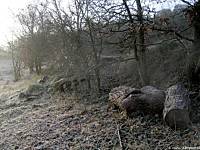
Other small elements may offer similar advantages to wildlife. Some thick pine trunks have been scattered over the terrain. Perhaps I will bury some of them halfway in the soil to accelerate the decomposition process.
In the next photograph I had just gathered some dispersed stones to pile them up to form a small wall.
|
Looking south-east.
Some pine trunks near the entrance. |
|
| Looking
south-west in the central part of the terrain. Sunday 16:22 |
||
|
|
The 'biowall' showed an
interesting phenomenon on Sunday morning: the area in front of the
south side was clearly a little bit warmer than its surroundings.
This reminds me of the same phenomenon on the terrain of the 'Ec
Another surprising 'human factor' effect were the green circles
around some shrubs near the caravan. A clear result of the
fertilizing effect of human urine.
|
|
| Looking
south-west. The biowall in the western part of the terrain. Sunday 9:04 |
||
|
Green circles around
Mespilus
japonicus and a Lonicera species. Sunday 17:05
|
||
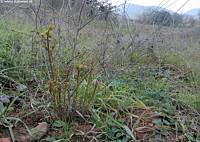
The extreme temperatures of last week had gone but the temperatures still dropped a bit below zero in the morning. Nevertheless, this specimen of Euphorbia cyparissias seemed to give it a try.
What (orchid?) flower will appear from these rosettes of leaves which appeared here and there on the terrain? A surprise for next spring..
And what will remain of these spontaneous ligneous seedlings at the edge of the wood?
|
Euphorbia cyparissias
|
|
|
|
Orchids? Looking west in the central 'passage' of the terrain. Sunday 16:16 |
|
| Seedlings
of Pinus silvestris,
Juniperus communis
and Quercus faginea
surrounded by the skeletons of
small Prunus spinosa
shrubs. Sunday 16:32 |
||
|
|
To finish just some impressions.
|
|
| A carpet
of Hieracium pillosella (with white fungi spots), a Prunella species and moss. Right to the centre a very small
shrub of Prunus spinosa. Sunday 16:29 |
Looking east on the eastern
part, Sunday 9:25 |
|
|
Looking west on the eastern
part. Sunday 16:44 |
||
|
introduction
|
|
